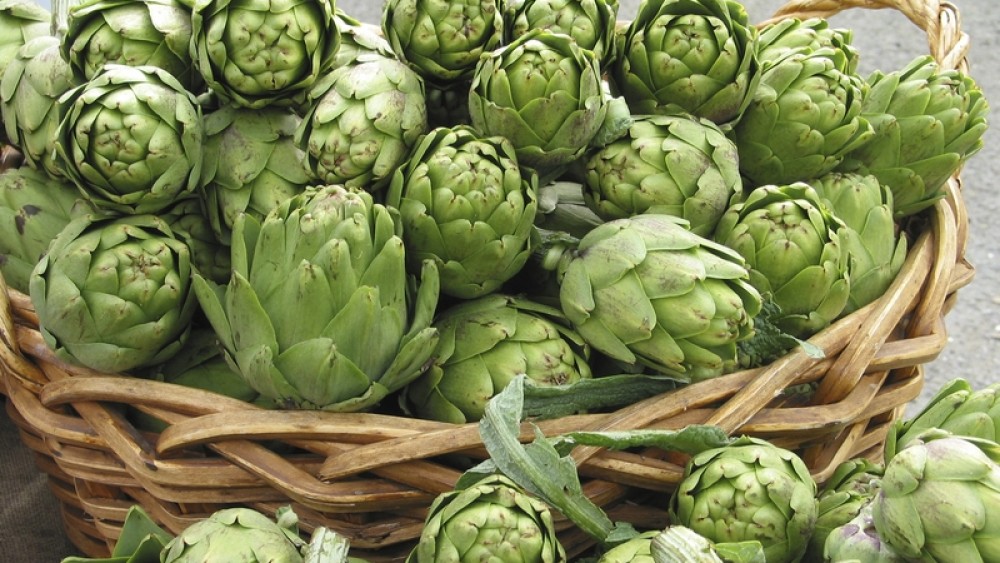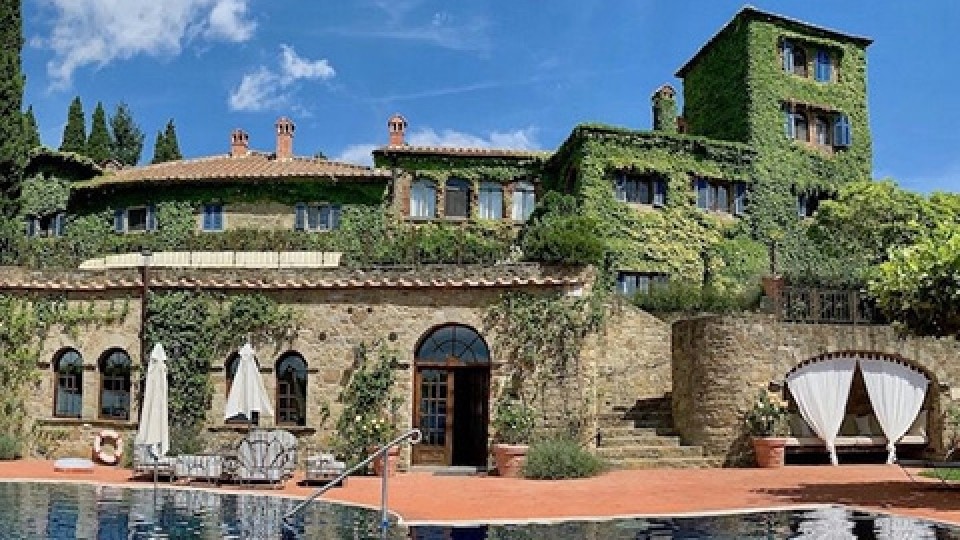7 Things you did not know about Artichokes.
April 30, 2015

7 Things you did not know about Artichokes.
Artichokes and cardoons have been part of the Mediterranean civilizations since the Greco-Roman era.
According to the myth, the artichoke was born after Zeus one day decided to visit his brother Poseidon. During his journey, the God saw and seduced a lovely woman on the beach. Ashen hair, with green shades, her name was Cynara. He brought her on Mount Olympus but Cynara was sad. She felt alone and she missed home. Her feelings became unbearable, and she decided to travel back to Earth to visit her family and her beloved homeland. Zeus discovered what she did and punished her: he turned her into a plant, beautiful and strong like she was, the artichoke. It is possible that the scientific name of the delicious vegetable, Cynara Cardunculus , comes precisely from the story of this unfortunate woman.
The Romans adopted the legend, and the passionate lover became Jove (the Roman Zeus). In the Roman version of the story, it was Jove’s wife, Juno, blinded by her own jealousy, who turned Cynara into an artichoke. Interestingly enough, the plant and the hair of the young woman share the same colours: hash and green.
The mythology is fascinating. However, according to Lucio Giusto Moderato Columella, author of the most comprehensive ancient treatise on agriculture, De re rustica, the name comes from the word cinis, hash, which was often use to make the soil more fertile for the cultivation of this plant. What scholars know for sure is that artichokes are a variety of wild cardoon, a tougher and bitter plant known for its health benefits. The Romans adored artichokes and they used to marinate them for an entire night in honey and vinegar, a process that tames and sweetens their strong flavour. They then cooked and seasoned them with cumin.
After the fall of the Roman Empire, artichokes seemed to disappear. But the plant is resilient and survived the disappearance of the Romans, remaining enfolded in silence as centuries went by. We meet it again during the Renaissance, where it earned the respect of the most sophisticated families. Truth be told, this is not at all surprising: the Renaissance itself was built on the rediscovery of classic civilizations and cultures, and the plant belonged to that ancient world. Historians suggest that Caterina de' Medici used to adore it. One the reasons we know this is the fact that artichokes, at that time, were considered a potent aphrodisiac, and the Tuscan puritans were scandalized by the audacity of the young woman.
Even La Framboisière, the physician of Luis XIII king of France (1601 – 1643), believed in the aphrodisiac properties of the artichoke. In fact, he famously stated: “artichokes make the blood warmer stimulating the will to engage in the amorous game of Venus…” Even today, especially in popular Mediterranean cultures, the artichoke is a metaphor for the virile member or the anus, if we refer to its hidden heart.
The artichoke is a tasty plant with a peculiar, unforgivable taste, perfect for those who own a strong personality. Talking about strong personalities, Caravaggio was known to be a cursed artist, someone who brandished swords and guns, was arrested for beating up a man and once killed a love rival. It appears that one day the famous artist attacked a waiter and the reason was, incredibly enough, a plait full of artichokes. This is how the victim described what happened, it was the 26th of April 1604: “I brought them eight artichokes, four of them cooked in butter and four in oil, and I suggested they should smell them. He got very angry and, without saying a word, he took the pot and hit me on my cheek, hurting me… then he stood up and brandished his friend’s sword, which was lying on the table, and it looked like he wanted to hit me. I ran away and I came here to the police station to make a formal complaint”. Be careful: this is a veggie you should take seriously!
Sigmund Freud loved artichokes too, he used to dream about them, and even Marilyn Monroe was a big fan of the plant.
But let’s close this post with the greatest poem ever dedicated to a vegetable. It was included in Odas elementales, written by Pablo Neruda, the 1971 winner of the Nobel Prize in Literature. His Ode to the Artichoke is a poem inspired by the purest love and passion, the same feelings Zeus felt for Cynara.
Please leave a comment or recipes about Artichokes below this post.

Interested in our cooking courses at one of our Tuscan villas?
Do you want to enjoy our Tuscany cooking classes with plenty of time to explore in your free time, all while staying in an amazing villa?
Reviews
How our guests experienced the Tuscookany courses
Reviews from our former guests made about their visit to Tuscookany on TripAdvisor, facebook, Twitter, Google, Chow and Yelp.











